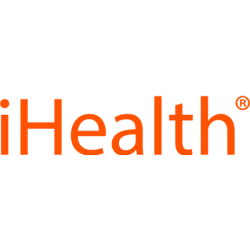Diabetes and Kidney Function
Diabetes is a widespread epidemic, affecting around 20 million people in the United States and 171 million people worldwide. Diabetes is often associated with chronic kidney disease (CKD). CKD, regardless of its underlying etiology, is defined as either kidney damage or decreased kidney function for ≥ 3 months. For nearly half of patients who receive dialysis therapy, diabetes is the primary cause of their kidney failure. Moderate to severe CKD is estimated to be found in 15-23% of patients with diabetes. Diabetes and kidney disease are not the only diseases linked together. This combination of diagnoses, diabetes and kidney disease, together significantly increase a person's risk of cardiovascular disease, heart attack and stroke compared to people without the diagnosis combination. For patients with microalbuminuria (small amounts of protein that the kidneys leak into the urine), the risk of cardiovascular disease is twice that compared to patients with no albuminuria. You should always keep your regular doctor's visits, try to keep your blood glucose within normal range for diabetics, A1C < 7.0%, and check your kidney function at least annually.
Medication Management
Traditionally, insulin has been considered the safest choice for treating diabetic patients with kidney injury. Some oral medications for diabetes are filtered through the kidneys and must be reduced to not stress the kidneys when they are already fragile. Depending on the amount of protein in urine, other urine tests, imaging studies, or blood tests, doctors can fine-tune your oral medications so they won't affect kidney function.

Eating with Diabetes and CKD
Diet becomes even more important for people that have both conditions. You will need to pay more attention to the amount of carbohydrates (sugars) that you eat. Carbohydrates can be found in many foods such as fruits, milk, grains, starchy foods, desserts and many sugary drinks. Sodium is a mineral that is mainly found in salt, sauces and processed foods. Sodium remains important for both CKD and diabetic patients. Keeping your diet lower in sodium helps to lower blood pressure and reduce fluid retention. Protein is another nutrient that has enhanced importance and too much protein can be harmful for people with diabetes and CKD. Just as well, when we aren't getting enough energy from the food we eat, our body starts to break down protein for energy, and ammonium, the byproduct of this breakdown, is excreted through the kidneys. Patients that don't eat enough carbohydrates or protein typically gradually begin to stress their kidneys. Therefore, it is important to talk to your dietitian and nephrologist to determine how much protein is appropriate for your individual level of kidney function. Patients with later stage of CKD or end-stage kidney disease often need to be careful also to not get too much calcium, phosphorous, or potassium. Besides eating healthful foods in the right amounts, there is a huge emphasis on eating on a routine and balancing out your meals and snacks for better blood glucose management.

The Following are examples of foods and drinks that are can be exchanged and are good for both diets:
Fruits
- Good alternatives: Berries, grapes, cherries, apples, plums
- Avoid: Cantaloupe, mangos, kiwi, oranges, pomegranate, banana
- Good Alternatives: Cauliflower, onions, asparagus, eggplant, turnips
- Avoid: Okra, spinach, potatoes, artichokes, tomatoes
- Good Alternatives: Lean meats (poultry, fish), eggs, unsalted seafood
- Avoid: Bacon, hotdogs, lunch meats, pepperoni, nuts
- Good Alternatives: Water, clear diet sodas, crystal light, unsweetened tea
- Avoid: Dark sodas, beer, sugary drinks such as Hawaiian Punch or Sunny Delight, Sweet tea or lemonade
- Good Alternatives: White bread, bagel, sandwich bun, unsalted crackers, pasta
- Avoid: Whole wheat or whole grain breads, sugar coated cereal, pancake and biscuit mix, potato chips
 So how do we use it? First, divide your plate into 4 equal parts. In 1 part put your carbohydrate. In another part put protein, and in the last two parts add non-starchy vegetables. the end result should look like the picture above.
So how do we use it? First, divide your plate into 4 equal parts. In 1 part put your carbohydrate. In another part put protein, and in the last two parts add non-starchy vegetables. the end result should look like the picture above.
Takeaways
Here are some tips for people with both conditions:- Check your blood sugar in the frequency that is recommended by your health care team
- Maintain HbA1C (3-month average blood sugar) <7%
- Maintain good blood pressure
- Maintain or get to a healthy weight
- Get kidney function checked at least annually
- Watch out for the carbohydrates portion that you are having
- Get adequate protein and fluid intake as recommended by your health care team
- Talk to your dietitian to get a personalized meal plan or diet suggestions
- If you use orange juice to treat low blood sugar, switch to glucose tablets with less potassium, you can get glucose tablets in most pharmacy like CVS, Walgreen, etc.
September 25, 2018 | Categories: Chronic Kidney Disease, Chronic Kidney Disease (CKD), CKD Complications, Comorbidity, Comorbidity & Diabetes, Complications, Diabetes, Diabetes Complications | Comments Off
This feature is coming soon
-
July 09, 2024
-
May 08, 2024
-
March 04, 2024
This feature is coming soon
You May Also Like
Title placeholder
posted_date placeholder
Title placeholder
posted_date placeholder
Title placeholder
posted_date placeholder
Title placeholder
posted_date placeholder
Title placeholder
posted_date placeholder
Title placeholder
posted_date placeholder
Title placeholder
posted_date placeholder
Title placeholder
posted_date placeholder
Title placeholder
posted_date placeholder
Title placeholder
posted_date placeholder
Title placeholder
posted_date placeholder
Title placeholder
posted_date placeholder
Title placeholder
posted_date placeholder
Title placeholder
posted_date placeholder
Title placeholder
posted_date placeholder



